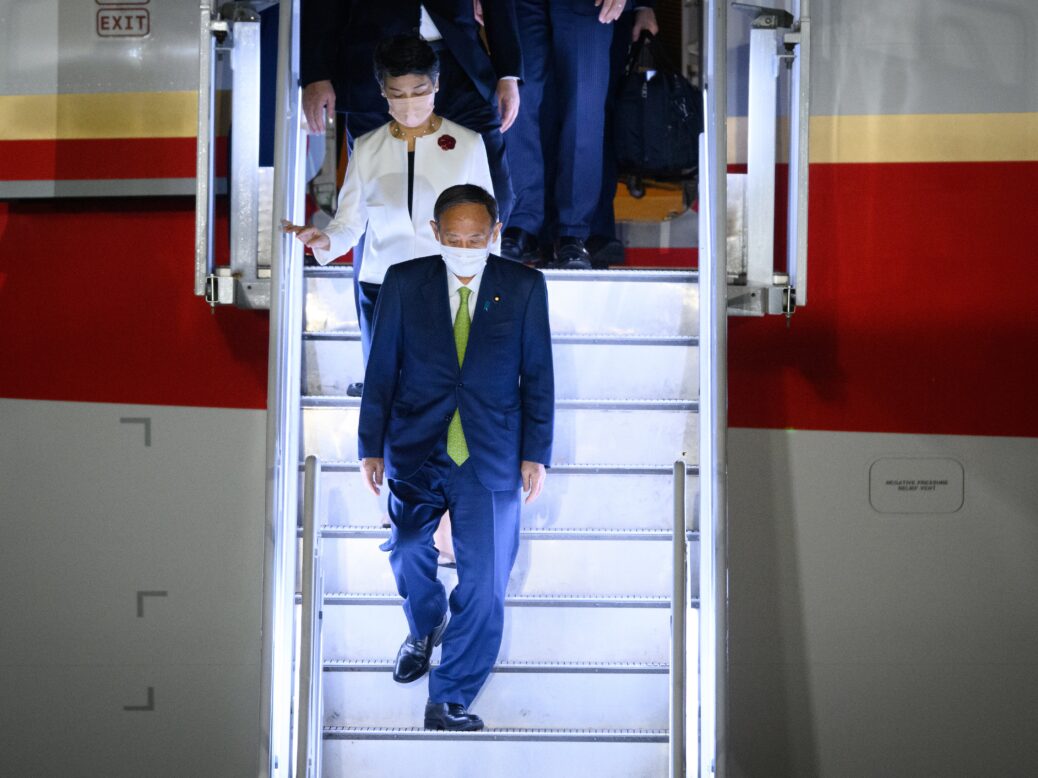
This time last year, hopes were high that the delayed Tokyo 2020 Olympic and Paralympic Games would be a collective celebration of victory over coronavirus. But while the Games are still scheduled to open on 23 July, early optimism was premature, and the public knows it. With only 20 per cent of the Japanese population vaccinated, fears are rife that the Olympics will become a coronavirus super-spreader event: a poll published in the Asahi Shimbun on 28 June shows that 60 percent of voters in Tokyo want them to be cancelled.
Hosting the games is consequently coming at a considerable cost to Japan’s political class. The most high-profile casualty is Tokyo governor Yuriko Koike, who had to spend last week in bed after being overcome with fatigue brought on by incessant meetings and press conferences. Prime minister Yoshihide Suga has also taken a beating over his insistence on pressing ahead with the games alongside his government’s slow and inept handling of the pandemic.
Olympics organisers insist that the risk of infection can be mitigated by enforcing vigorous safety measures. The 11,000 athletes due to compete will be tested daily and their location will be monitored via GPS. Failure to comply could result in fines, and even expulsion from future Games.
But even with foreign visitors barred from traveling to Japan for the Games, around 15,000 athletes and 53,000 officials are still expected to fly in (down from the 180,000 initially expected to attend).
In late June, the Tokyo Organising Committee announced that domestic spectators would be limited to 50 per cent of a venue’s capacity, or 10,000 fans per venue, whichever figure was lower. Yet with the number of cases in Tokyo running at over 500 per day, the latest thinking is to limit numbers to 5,000 fans per venue and to hold all larger events behind closed doors. If this is what they decide to go with, there will be no spectators at 40 per cent of events, including the opening and closing ceremonies. The committee has warned that it may well ban spectators entirely.
***
Cancelling the games would result in huge financial losses for the government. The official cost of the Olympics is $15.4 billion, but government audits over the last several years suggest it is much higher than stated. All but $6.7 billion of that sum comes from the public purse.
The International Olympic Committee (IOC) is also determined to push ahead with the Olympics, partly because almost 75 per cent of its income comes from the sale of broadcasting rights. Broadcasters are hopeful that Tokyo 2020 will prove to be the most profitable Olympics ever, but that calculation is at risk if the lack of spectators results in TV audiences losing interest. Given that spectators have been asked to refrain from cheering, that’s a real possibility.
Yet concern that the influx of visitors will cause a spike in Covid cases is widespread in Tokyo. And it has been compounded by the sluggish pace of Japan’s vaccine rollout. The pace has picked up in recent weeks, with the government hitting its nationwide target of vaccinating a million people a day, but not fast enough to prevent the games becoming a bad news story.
To date there have been 808,000 Covid-19 cases and over 14,000 deaths in Japan – considerably less than most advanced economies, yet still cause for concern.
***
Politically, the government’s determination to plough ahead with the Olympics risks making it look out of touch with voters, many of whom are aghast at the way the government has handled the pandemic.
Virtually all new coronavirus countermeasures have been declared at the request of prefectural governors, yet those measures have been expanded and/or lifted by the government of Yoshihide Suga. This has left governors looking like steadfast protectors of public health and Suga looking either timid for belatedly strengthening inadequate measures, or foolhardy for lifting them prematurely.
Suga became prime minister in September 2020, after Shinzo Abe was forced to resign due to health issues. Suga’s humble origins played well with voters. Born to a family of strawberry farmers in the rural Akita prefecture, he worked in a cardboard factory to pay his way through university. He doesn’t have Abe’s charisma, but he embodies the steadiness that many older voters, who make up the core Liberal Democratic Party vote, like to see in politicians.
His appeal has been wearing thin amid criticism of his handling of the coronavirus, however. A recent Asahi Shimbun poll of Tokyo residents put the approval rating for his cabinet at just 33 percent, the lowest since he came to office. National elections are due to take place in October. Despite his waning appeal, the threat to Suga comes not from Japan’s perennially divided opposition parties, but from rival factions in the ruling party.
Even before the pandemic hit, the Tokyo Games attracted plenty of bad press, from shady dealings to win the host bid to the abrupt replacement of the chief architect of the new National Stadium, and multiple scandals that exposed sexism among organising bodies. If the Olympics now fail to give Suga a boost, his party’s bosses may feel tempted to give him the boot.
[See also: How mistrust is fuelling a Covid-19 surge in Russia]





